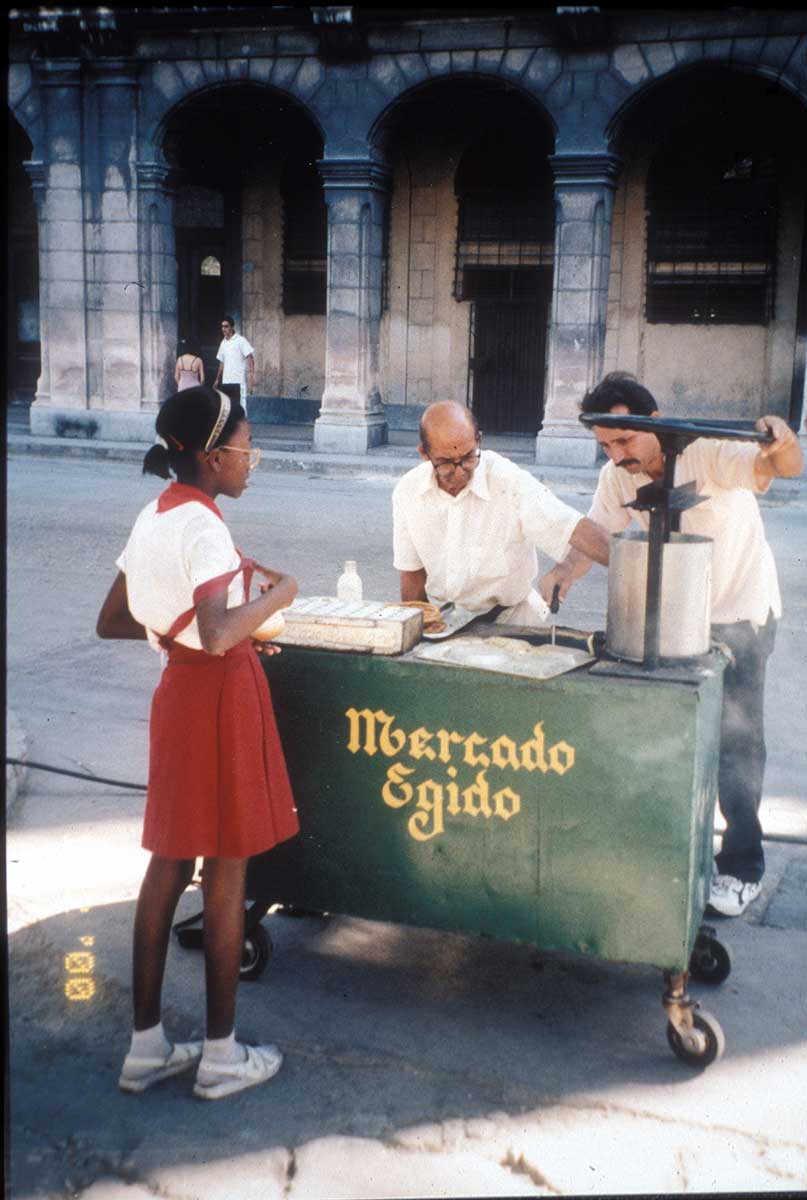Like the small family-owned restaurant, the re-legalization of timbiriches (street snack stalls) in 1992 for the first time since 1968 sparked a highly visible restoration and revival of many of the same businesses by the very same people who had operated them years earlier. Most, like this timbirichero [street vendor], used exactly the same equipment that they had hidden away and returned to making delicious snacks like Cuban churros, fried dough sprinkled with sugar and cinnamon. Until 1998, timbiriches dramatically proliferated. Those offering churros and soft-serve ice creams (often mysteriously but deliciously made from powdered milk and fruit concoctions) sold thousands of products a day, especially in Havana. At the time, many prophesied that their success would lead to their downfall. It did: not only did the state initially open vending stalls selling cheaper goods nearby, but when the state’s vendors could not out-compete private vendors, inspectors and police fined them out of business charges of black marketeering. Later, the state simply passed laws saying that no private business could operate without nine hundred feet of a government-owned business of the same type.
